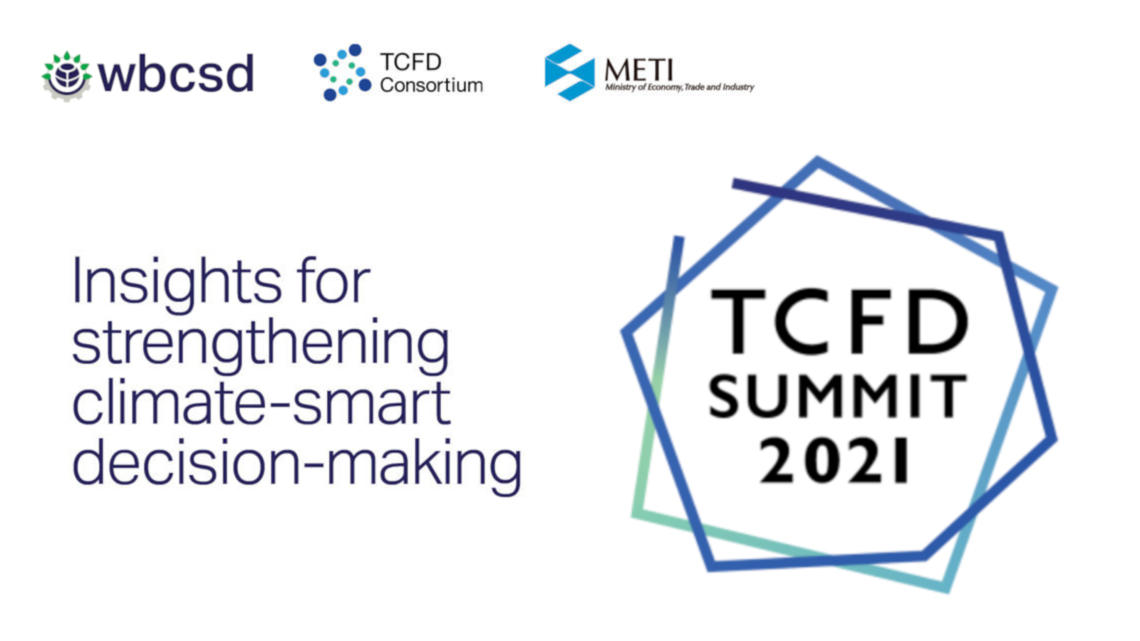This year, the TCFD Summit marked a critical milestone on the road to COP26, bringing together leaders of leading companies, financial institutions, and other relevant organizations to exchange insights and developments relating to the Task-Force on Climate-related Financial Disclosures (TCFD).
The TCFD recommendations provide a common language by which corporates, investors, standard-setters and regulators can communicate and manage climate-related risks and opportunities. This year was the third edition of the TCFD Summit, following on its successful inaugural and second editions, organized by the Japanese Ministry of Economy, Trade and Industry (METI), WBCSD and the TCFD Consortium of Japan.
Speakers in this year's summit emphasized TCFD support and implementation has seen significant progress over the past year. Since 2020, TCFD has secured over 1,000 additional supporters worldwide, including a historic endorsement by the G7 in June. A number of governments and supervisory and security organizations have shifted towards compulsory climate reporting - either following or in line with TCFD recommendations.
The summit highlighted other key developments in the uptake and advancement of TCFD recommendations:
- A preliminary overview was provided of the newly released Guidance on Metrics, Targets and Transition Plans from the TCFD Secretariat, which outlines seven categories of cross-industry metrics, guidance on communicating transition plans, as well as additional information on communicating financial impact and climate-related risk exposure and response. WBCSD is proud to have contributed to this guidance.
- It was noted that meaningful engagement between investors and corporates, is key to unlocking a net zero transition. Several resources in climate financing were highlighted, including the launch of the Green Investment Guidance 2.0 from the Japan TCFD Consortium and the Climate Transition Finance Handbook published by the International Capital Market Association.
- As the uptake of TCFD recommendations increases globally, the Japan TCFD Consortium is engaging with other countries that are looking to establish their own national consortia. For example, the Bank of Mexico is setting up a TCFD Consortium in Mexico based on good practices from the Japan consortium.
While such progress is encouraging, there is much to be done to leverage this momentum in scaling up high quality, comparable, and reliable assessment and disclosure on climate-related risks, impacts, opportunities and transition plans. That is why WBCSD continues to work on TCFD Response, strengthening work with leading companies relating to the challenging issue of climate scenario analysis, starting with a focus on the energy system and moving onto food, agriculture and forest products. WBCSD will also bring the voice of preparers from the real economy into conversations and work on standardization as progressed by the International Sustainability Standards Board and transitions as progressed by the Glasgow Financial Alliance for Net Zero.








